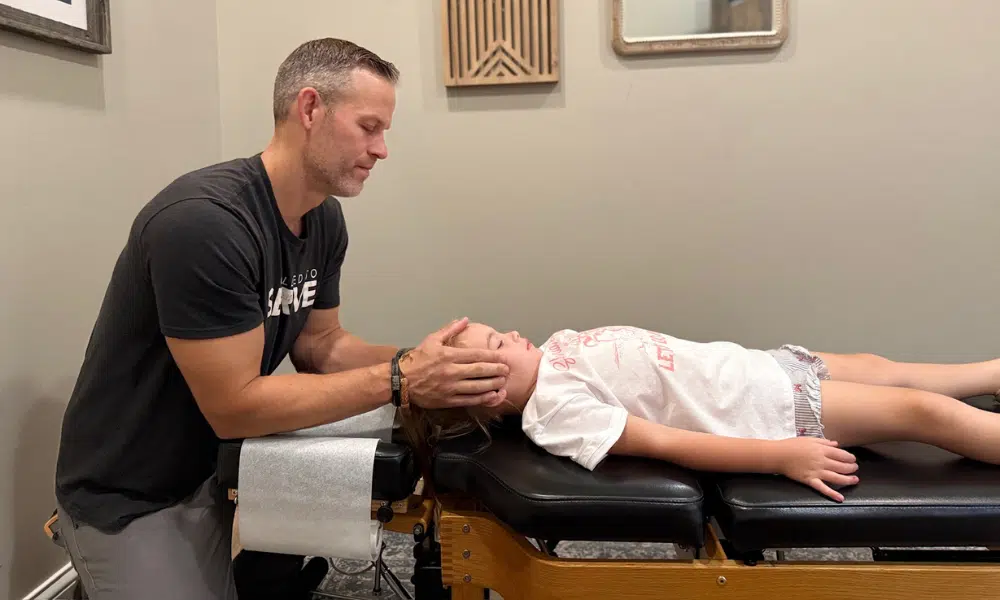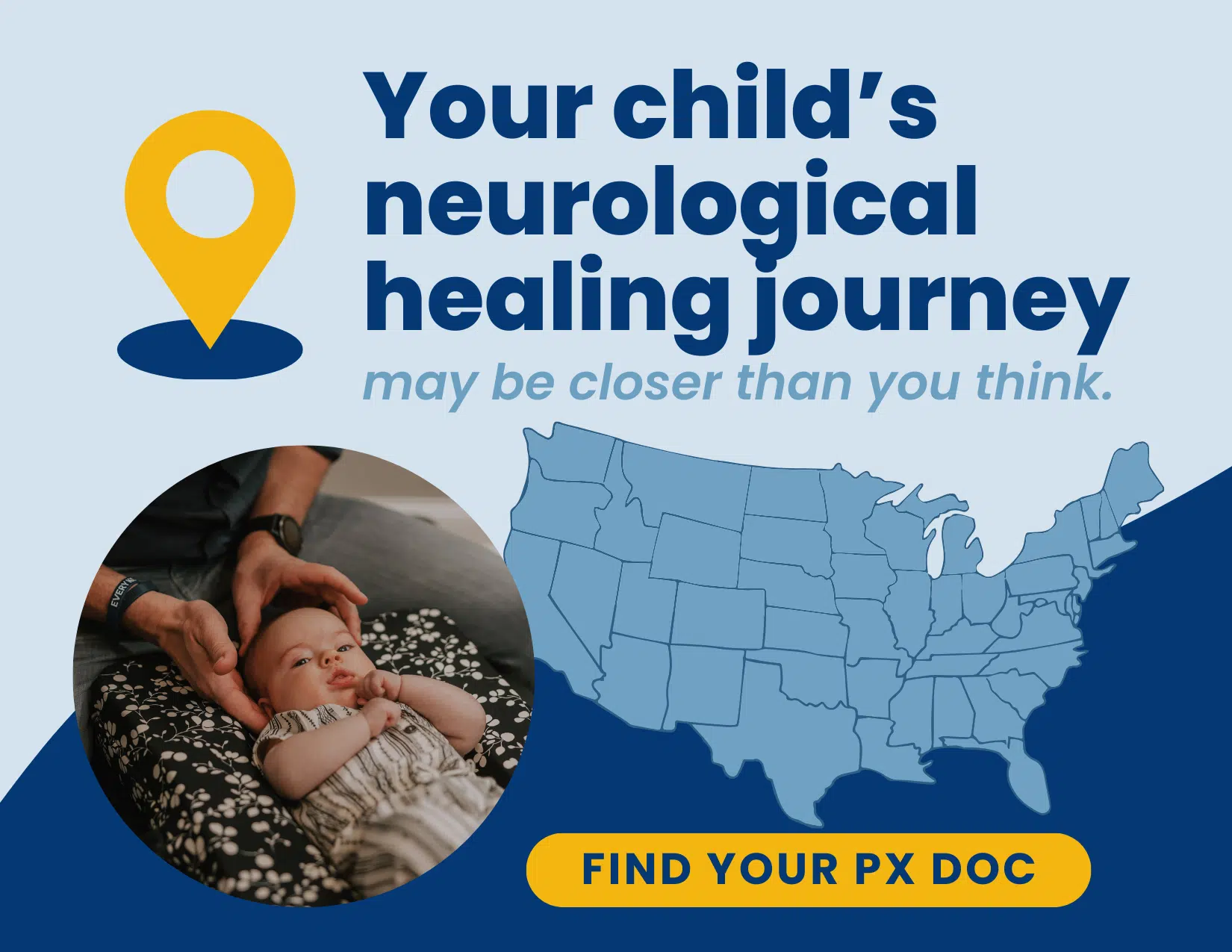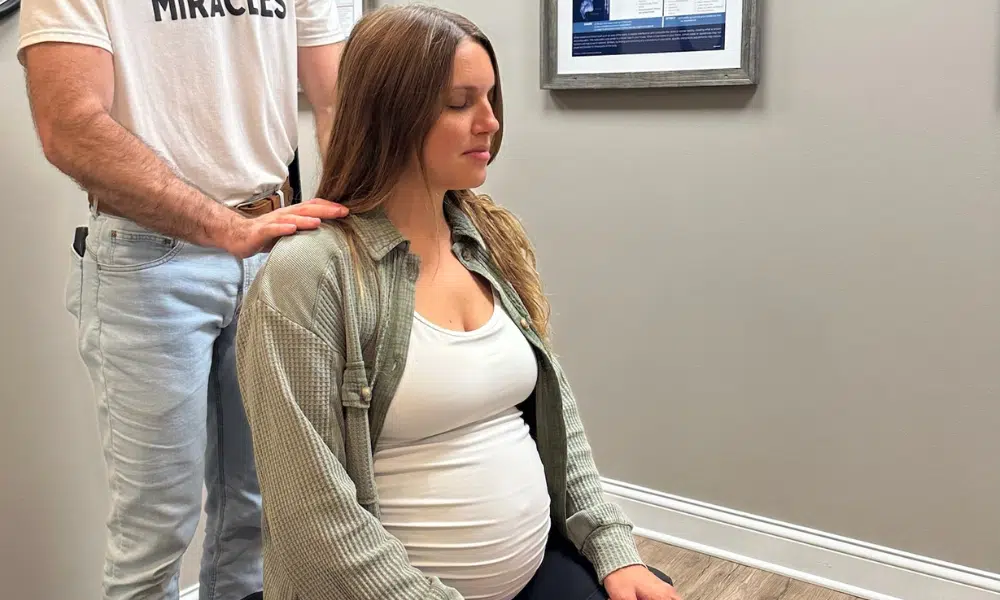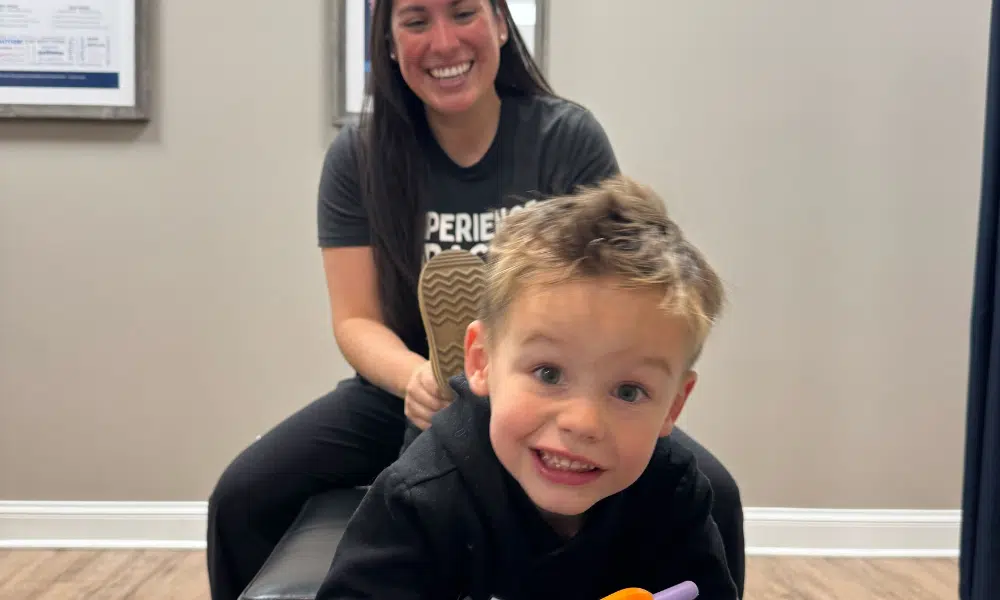If your child has ADHD and still struggles with bedwetting, you’ve probably wondered why nothing you try seems to make a lasting difference. Limiting drinks… waking them up at night… reward charts… you’ve tried it all — yet the wet sheets and morning frustration keep coming back.
And not to mention…the shame your child can feel.
The embarrassment.
The “Why can’t I do this like other kids?”
It breaks your heart because you know it’s not their fault.
But here’s the part no one really talks about: these two challenges often show up together.
Not because you’ve missed something…
Not because your child is lazy or unmotivated…
But because there may be a deeper connection inside the body that most parents are never told about.
Bedwetting affects roughly 15% of 5-year-olds, yet despite how common it is, most parents never hear why it’s happening or that it may share a deeper connection with ADHD.
By understanding the neurological connection between ADHD and bedwetting, parents can find new hope and a path toward lasting solutions. In this article, we’ll explore this often-overlooked link, providing you with the knowledge and tools you need to support your child’s unique challenges and reach their full potential, both day and night.
The Prevalence of Bedwetting in Children with ADHD
Bedwetting, also known as Nocturnal Enuresis, is a common issue among children. However, for children with Attention Deficit Hyperactivity Disorder (ADHD), the prevalence of bedwetting is significantly higher. Studies suggest that 28-32% of children with ADHD also experience bedwetting, which is nearly three times the rate of their neurotypical peers.
So, is bedwetting a sign of ADHD? Not necessarily. The connection between ADHD and bedwetting is complex and not yet fully understood by medical professionals. However, researchers believe that several factors may contribute to this increased risk, including:
- Delayed development of the central nervous system
- Reduced bladder capacity and increased nighttime urine production
- Difficulty with self-regulation and sleep disturbances
- Impaired ability to recognize and respond to bladder signals
Understanding the Neurological Link
At the heart of the connection between ADHD and bedwetting lies the central nervous system (CNS). The CNS, which includes the brain and spinal cord, plays a crucial role in regulating bladder function and controlling the urge to urinate. In typically developing children, the CNS matures over time, allowing for better bladder control and nighttime continence.
However, children with ADHD often experience delays in the development of the CNS. This delay can impair their ability to recognize and respond to bladder signals, increasing the likelihood of bedwetting. Research has shown that children with ADHD may not be sending or processing the necessary “executive function” signals to make it to the bathroom when their bladder is full, resulting in nighttime accidents.
In addition to delays, studies have found that genetic factors may also contribute to the link between ADHD and bedwetting. Both conditions have been shown to run in families, suggesting a potential hereditary component. While no single gene has been identified as the sole cause of either ADHD or bedwetting, studies have found that certain genetic variations may increase the risk of developing these conditions.
But too often, parents are told to “blame the genes” and accept these challenges as something their child will simply outgrow or be stuck with. The truth is, genetics load the gun… environment, stress, and early developmental factors pull the trigger.
There are bigger, more influential forces that shape how your child’s brain and nervous system develop — and when these factors collide, they can create the perfect storm that can lead to both ADHD and bedwetting.
The “Perfect Storm” of Factors Linking ADHD to Bedwetting
At PX Docs, we often refer to the “Perfect Storm” concept when discussing the underlying factors that contribute to neurodevelopmental challenges like ADHD and bedwetting. This concept suggests that factors such as maternal prenatal stress, birth trauma, and early life experiences can have an effect on the developing nervous system. These factors may include:
- Maternal stress, anxiety, or health issues during pregnancy or preconception
- Complications during labor and delivery, such as prolonged labor or interventions like forceps or vacuum extraction
- Physical strain on the delicate tissues of the neck, spine, and brainstem during the birthing process
- Exposure to toxins, medications, and antibiotics early on
- Excessive emotional stress during early childhood development
When these elements combine, they lead to subluxation and nervous system dysregulation, which disrupts the proper development and function of the CNS, setting the stage for conditions like ADHD and bedwetting to emerge.
This is where the nervous system link becomes so important.
When a child’s nervous system is overwhelmed early on, it can get stuck in a constant state of “fight-or-flight” or sympathetic dominance. In this state, the brain prioritizes survival over regulation, which impacts:
- Attention, behavior, and impulse control: The brain struggles to shift gears, stay focused, or regulate emotions — classic ADHD traits.
- Automatic body functions: Bladder control, nighttime regulation, and the sleep/wake cycle depend on a calm, regulated nervous system. When those areas are stressed, bedwetting becomes far more likely.
- Sensory processing: The part of the nervous system responsible for recognizing body signals can become confused or under-responsive. When this happens, children may not reliably feel the urge to go to the bathroom, or they may sense it too late. Their brain struggles to clearly interpret messages from the bladder, making nighttime control especially difficult.
In other words, ADHD and bedwetting aren’t always separate, random challenges. They can be two different symptoms of the same underlying issue: a stressed, dysregulated nervous system trying its best to keep up.
By understanding the neurological link and potential contributing factors, parents and healthcare providers can better support children who face these challenges and work toward effective, long-lasting solutions.
The Emotional Impact of Bedwetting on Children with ADHD
Beyond the physical challenges, bedwetting can have a profound emotional impact on children with ADHD. The repeated experience of waking up after they wet the bed can lead to feelings of shame, embarrassment, and low self-esteem. Children may feel like they are “failing” or that there is something wrong with them, not understanding that bedwetting is often beyond their control.
Bedwetting can also contribute to increased anxiety in children with ADHD. The fear of having an accident at a sleepover or during a family trip can cause significant distress, leading some children to avoid social situations altogether. This isolation can further compound feelings of loneliness and self-doubt, impacting their overall mental health and well-being.
As a parent, it’s important to understand the emotional impact of bedwetting on your child. Provide consistent reassurance that it’s not their fault and encourage open communication in a non-judgmental environment. Work with your child’s healthcare provider to create a comprehensive care plan that addresses both physical and emotional aspects. This drug-free approach can help your child build resilience and confidence to overcome this challenge.
Remember, your child needs your support and understanding now more than ever. With patience, empathy, and the right interventions, you can help your child navigate the emotional impact of bedwetting and emerge with a stronger sense of self and a brighter outlook on the future.
Practical Tips for Managing Bedwetting in Children with ADHD
While addressing the underlying neurological factors is crucial for long-term success, there are several practical steps parents can take to manage bedwetting and support their child’s journey to stay dry. Here are some tips to help you navigate this challenging time:
- Limit fluid intake before bedtime: Encourage your child to drink plenty of fluids throughout the day, but reduce or eliminate drinks in the last 1-2 hours before bed. This can help minimize the amount of urine produced overnight.
- Establish a consistent bathroom routine: Have your child use the bathroom at regular intervals throughout the day, and make sure they go right before bedtime. This can help train their bladder and improve nighttime control.
- Use protective undergarments: Products like absorbent nighttime underwear or bedwetting alarms can provide a sense of security and make cleanup easier. Encourage your child to see these tools as a helpful part of their routine, rather than a source of shame.
- Implement a reward system: Celebrate your child’s progress and efforts with positive reinforcement. Consider using a sticker chart or small rewards for dry nights, focusing on their dedication to following the bedtime routine rather than solely on the outcome.
- Maintain open communication: Keep the lines of communication open with your child, and regularly check in on their feelings and concerns. Remind them that bedwetting is a common issue and that you’re proud of them for working hard to overcome it.
In addition to these practical strategies, it’s essential to approach bedwetting with patience and understanding. Progress may be slow at times, and setbacks are a normal part of the process. Celebrate your child’s successes, no matter how small, and remain consistent in your support and encouragement.
By implementing these practical tips and maintaining a positive, supportive attitude, you can help your child build the skills and confidence they need to successfully navigate the challenges of bedwetting and ADHD. With time, consistency, and a lot of love, your child can achieve lasting dryness and the sense of accomplishment that comes with it.
The PX Docs Approach: Addressing the Root Cause
While practical strategies can provide some relief, truly overcoming the challenges of bedwetting and ADHD requires a deeper understanding of the underlying neurological factors at play. This is where the PX Docs approach comes in, offering a unique perspective that focuses on addressing the root cause of these conditions.
Conventional medical approaches often rely on symptom management, such as prescribing medications to control ADHD signs or suggesting bedwetting alarms to wake children when they start to urinate. While these methods can be helpful in the short term, they don’t address the fundamental issue: the disruption of nervous system function that can lead to both ADHD and bedwetting.
We understand that the key to lasting change lies in supporting the healthy development and function of the central nervous system. Our approach, Neurologically-Focused Chiropractic Care, aims to identify and address areas of subluxation and nervous system dysfunction that may be contributing to your child’s challenges.
One of the key tools we use in this process is the INSiGHT Scan, a non-invasive yet advanced technology that allows us to assess your child’s nervous system function in detail. By measuring factors like heart rate variability, neuromuscular tension, and neurothermal patterns, we can pinpoint areas of imbalance and create a customized care plan to target the root cause of your child’s nervous system dysfunction.
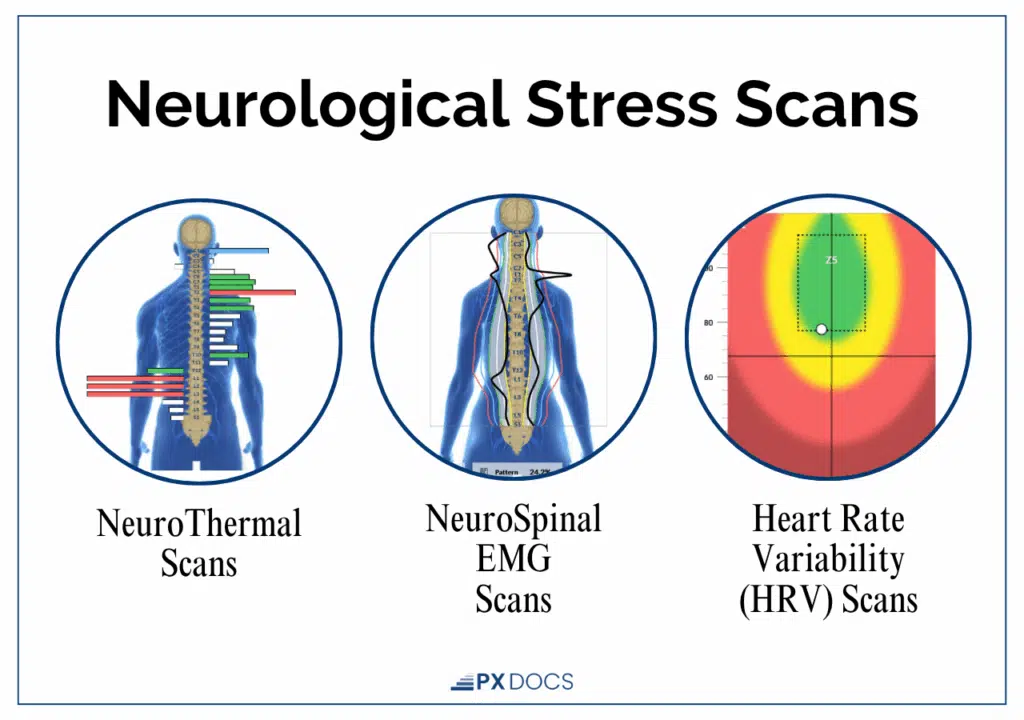
The benefits of this approach extend far beyond relief. By addressing the underlying neurological dysfunction, Neurologically-Focused Chiropractic Care can help children with ADHD and bedwetting build a stronger foundation for overall health and well-being. This drug-free, non-invasive approach empowers children to reach their full potential, both day and night.
A Path to Dryness and Thriving
For parents of children with ADHD and bedwetting, the journey can feel overwhelming at times. But know that you are not alone, and there is hope for lasting solutions. By understanding the neurological link between these conditions and embracing a drug-free, root-cause approach, you can help your child achieve dryness and thrive in all aspects of their life.
At PX Docs, we’re committed to empowering families with the knowledge, tools, and support they need to navigate this path with confidence. If you’re ready to take the first step towards a brighter future for your child, we invite you to visit our PX Docs Directory and find a qualified practitioner near you.
Together, we can help your child break free from the cycle of bedwetting and ADHD struggles and reach their endless potential. With the right approach, a dry, restful night and a vibrant, fulfilling day are within reach. Your child deserves nothing less.

